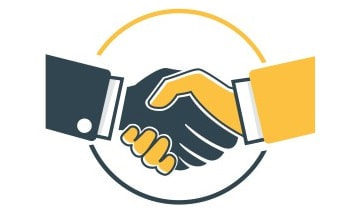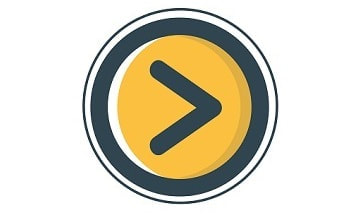The New Zealand Guide to Teaching Kids About Money
MoneyHub lists Ten Must-Know Tips to Give Your Kids the Skills for a Money-Centric World
Updated 26 February 2022
You may not have been taught much about money growing up, and may have struggled with credit card debt and overspending in your 20s, 30s and 40s. Whatever your situation, your children can master money and be successful in life even if they're not the strongest in school. Our guide to money helps you make sense of what's important and makes teaching money habits fun. Best of all, you can outsource chores for pocket money and avoid extreme nagging while you go shopping.
Why have we published this guide?
Next Steps
Overall, our guide covers:
Know This - Kids are always being told to save, but what are they saving for?
Know This: In late 2021, an app called SquareOne launched to help educate and 'gamify' kids financial education. Our SquareOne Review has more details.
Why have we published this guide?
- We believe that financial literacy is lacking throughout New Zealand, and it's not based on household income. Parents who earn $150,000+ are just as likely as those earning $40,000 to not understand financial literacy.
- We believe that what you can teach your children now will go a long way in forming their habits for a lifetime.
- Introducing money as something to talk about, alongside sport, video games and music, is easy and gives children the confidence to think about money.
- In essence, we want every child to be aware of how money works so they can make informed decisions.
Next Steps
- To help your kids understand how they can be financially responsible, aware and smart, we have presented ten suggested must-do activities that will gradually form habits.
- Some of these may be unfamiliar, but they're all proven to work and give children the building blocks to be money smart.
- Before you do anything, we suggest opening a bank account for your child. Even if the balance is $0, having a bank account gets them closer to saving.
Overall, our guide covers:
- Ten Ways to Form Sensible Habits and Make Your Kids Money Smart
- As Kids Get Older, They Can Secretly Get Into Debt
- Further Resources - Workshops, Apps and School Activities
Know This - Kids are always being told to save, but what are they saving for?
- It’s impossible to think about retirement at 10, 14, 20…so don’t even mention it.
- Saving has huge benefits for kids by giving them choices and freedom.
- Everything in life is EASIER when you have money, and kids who have worked for their money and saved it will appreciate this fact the most.
- Not saving limits what they can do. This guide continuously mentions saving with the purpose of helping your kids out when they need to buy something significant.
Know This: In late 2021, an app called SquareOne launched to help educate and 'gamify' kids financial education. Our SquareOne Review has more details.
Ten Ways to Form Sensible Habits and Make Your Kids Money Smart
Our list below outlines proven ways to steer your kids in the right direction with simple, easy and fun ways to shape the best money habits.
Talk about your bills and expensesShow your children that you're paying your bills and include them when you go shopping. Don't be afraid to show them the power bill, broadband bill and other services they use. As you pay bills, you can:
|
Get kids familiar with the value of a dollarKids usually don't know that money is earned by working – if you randomly buy them things on impulse, there is no appreciation and understanding about where the money comes from. They're likely to think it's unlimited and be confused when you say 'no you can't have that' later.
Instead, if you visit a shop, rather than being nagged at to buy everything big and colourful, give them $5 to spend - they will instantly transform into bargain hunters. If your child earns $20 by doing chores and then take it to a shop, they will most probably take a long time to spend it. They may not spend it at all, and instead, save it for later). Either way, it's the basics of great habits for life. A MoneyHub reader shares her story: "My 20-year-old son lives at home, and seeing how he behaves, I've realised he doesn't know the value of a dollar. He's continuously churning through jobs and asking us for money when he doesn't have any, which is often. My husband tells me not to give any, and he's right, but we've created a beast in that he likes a lifestyle. He asked me for $30 last week for a haircut, so I gave it. I asked him a couple of days later on why he hadn't had a haircut, and if I could have the money back. He'd spent it and needed more. It's a worry". - Isabel, Hawke's Bay |
Start giving pocket money (on the condition that chores get done)Pocket money without having to do anything is the same as welfare and should be discouraged. By assigning a list of tasks, parents can outsource repetitive chores to their children. For example, $15 a week is reasonable to cover:
Younger kids can also get an allowance by doing tasks without the need to nag:
Want to make pocket money digital? We suggest considering SquareOne, a pocket money/financial literacy app for children - our review has more details. |
Understand Kids NEED to make mistakes with moneyIf you want your children to be able to manage their money, and not merely differentiate between saving and spending, then you have to make sure they have money. When you go shopping:
|
Encourage part-time work: Kids can create their own business or work regular part-time hours without letting school sufferBabysitting, lawn mowing and dog walking are just some examples of in-demand jobs. Many companies hire students year-round. Our student jobs guide outlines how to take the next step. Kids can pick up one client at a time, and manage their schoolwork and hobbies alongside their work commitments.
We believe that when putting a student CV and cover letter together for jobs later on, having some sort of work experience is essential to talk about. It also can be used for examples in job interviews. |
When it comes to buying big items, encourage children to price compare online between shopsThis teaches your children that by comparing, items you can save money and avoid overpaying. It also forces kids to think about what they're buying before spending their money. Buying something off the shelf can be instantly gratifying, but it's also very likely you could pay too much. If your child doesn't need it urgently, then they can watch out for the item to be reduced in a sale.
A MoneyHub reader explains their recent experience: "Recently, my 16-year-old daughter and I were flying out of Auckland Airport. At the duty-free shop, she saw a perfume for $90. I asked her what the price at Farmers was. She checked her phone, and it turned out to be $65 for the same size. She was happy to avoid overpaying for something she didn't need right now." - Liz, Auckland |
Focus your children on EARNING moneyThe best way to earn money at a young age is to do jobs that have value. Even an eight-year-old can take out bins, weed gardens, feed cats and walk dogs. All of these are valuable services for time-poor adults. As they get older, more opportunities are available. Without earning money, there's minimal opportunity to learn how to spend and save money.
A MoneyHub reader explains their recent experience: "I had a revelation at primary school and told my friends I thought lollies were a waste of money because once you finish them, they're gone. They thought that was the dumbest thing they ever heard and laughed at me, but it seemed so dumb to keep buying them as I never really enjoyed them. I worked a lot before I was 10 and saved lots of $1 and $2 gold coins as a kid. At high school, I had a few gigs on the go, invested and amassed $15,000 by the time I l finished school. I think figuring out what you value (and don't value) is really important to get ahead in the world". - Paul, Dunedin |
Encourage your children to start saving and learn about investing – from age 12 or 13 is a good idea
For younger kids, encourage them to save their pocket money (and delay the gratification from impulsively buying things):
Set Saving Goals For example, if your kids want a new bike, PlayStation, Xbox or game, let them save up for it. This way they can learn to manage their money, and experience how satisfying it is to work hard and put money aside to make a purchase. |
Avoid encouraging credit cards until your kids are in their 20sBanks credit cards and high-interest finance options like the GEM Visa and Q Card all offer credit to anyone 18 or older. But even with a good grip of how credit cards work, young people can be easily tempted to overspend. Once started, it can lead to debt being dragged around for years to come.
Credit cards are best later on when your child is in full-time employment, with LOW and AFFORDABLE limits. |
Know that your children will ALWAYS absorb your money habits
A MoneyHub user makes it clear that income and financial education are not related: "My sister and her husband are both high earners, with a household income well over $300,000. They have new 4x4s, a fancy house, a beach house, private school fees and designer clothes for everyone…including their new baby. Despite all of this luxury, she complains all the time about not having enough money. She doesn't know what she wants, so she buys a lot of things she doesn't need." - Kate, Auckland |
Important - As Kids Get Older, They Can Secretly Get Into Debt
Fact: Many students who get a regular first job blow all the money as soon as they're paid. How does this happen?
Remember - credit history can be affected with non-payment of mobile phone payments. If kids get off-track early, it can affect the rest of their life. As one MoneyHub user explains:
"My nephew left school and got into some serious debt with mobile phones, data plans and online shopping. It got quite serious, and by the time he was 20, he owed around $10,000 and had defaulted on contracts. My brother and sister-in-law (his parents) bailed him out as he was getting very depressed but not talking much. Talking with my friends, I think this is common - teens and young adults keep secrets, so it's hard to know what's going on until something becomes a big problem".
- Michael, Auckland
- They buy the latest phone, an expensive phone plan and related services. Later on, they may crack the screen and need to pay for repairs. A smart alternative is to buy a used phone or less-known brand, and get a cheap SIM-only deal.
- They also follow fashion and get addicted to buying clothes and shoes to 'keep up' with their friends. Avoiding part-pay purchase options (Afterpay etc) is an excellent way to keep in control.
- There may also be a desire to buy a car. Cars are almost always money pits, and in Auckland and other big cities, there are viable alternatives such as buses, trains and the odd Uber. Register kids for bus cards as a child to start getting them familiar with public transport. Later on, a car may be essential for work, but until then it probably isn't a 'need'.
Remember - credit history can be affected with non-payment of mobile phone payments. If kids get off-track early, it can affect the rest of their life. As one MoneyHub user explains:
"My nephew left school and got into some serious debt with mobile phones, data plans and online shopping. It got quite serious, and by the time he was 20, he owed around $10,000 and had defaulted on contracts. My brother and sister-in-law (his parents) bailed him out as he was getting very depressed but not talking much. Talking with my friends, I think this is common - teens and young adults keep secrets, so it's hard to know what's going on until something becomes a big problem".
- Michael, Auckland
Further Resources - Workshops, Apps and School Activities
If you need further reading beyond the easy-to-action list above, some options exist. By including them in the list below, MoneyHub is not endorsing them in any way.
- MoneyTime - MoneyTime is an online financial literacy program for children ages 10 to 14. The platform is free in 500+ schools, with paid use-at-home licences available. We suggest reading their dedicated guide for parents to learn more about this innovative platform.
- Sorted in Schools – This government-led program is being rolled out to schools all over New Zealand. While it's not aimed at parents, the website outlines what's on offer.
- Young Enterprise – There are a select number of workshops that fall into the ‘financial literacy’ category, which can be accessed from the organisation’s website. By listing Young Enterprise, MoneyHub is in no way endorsing the business development and challenge programs.

















